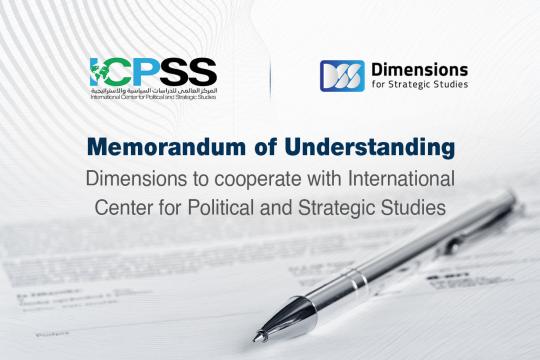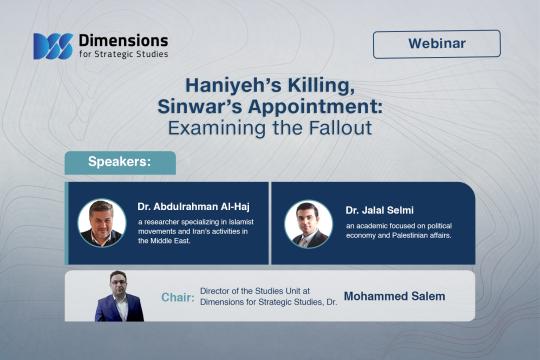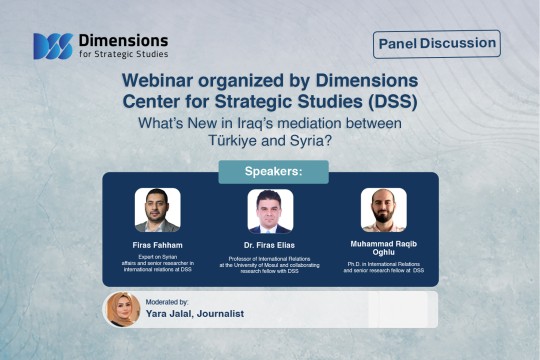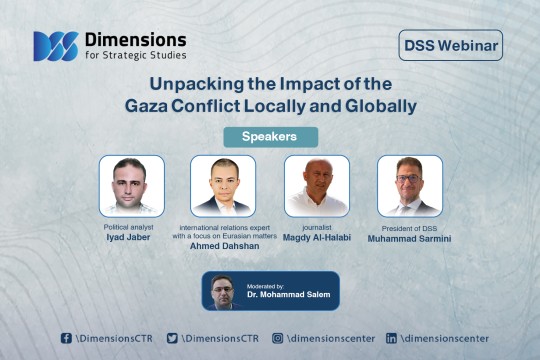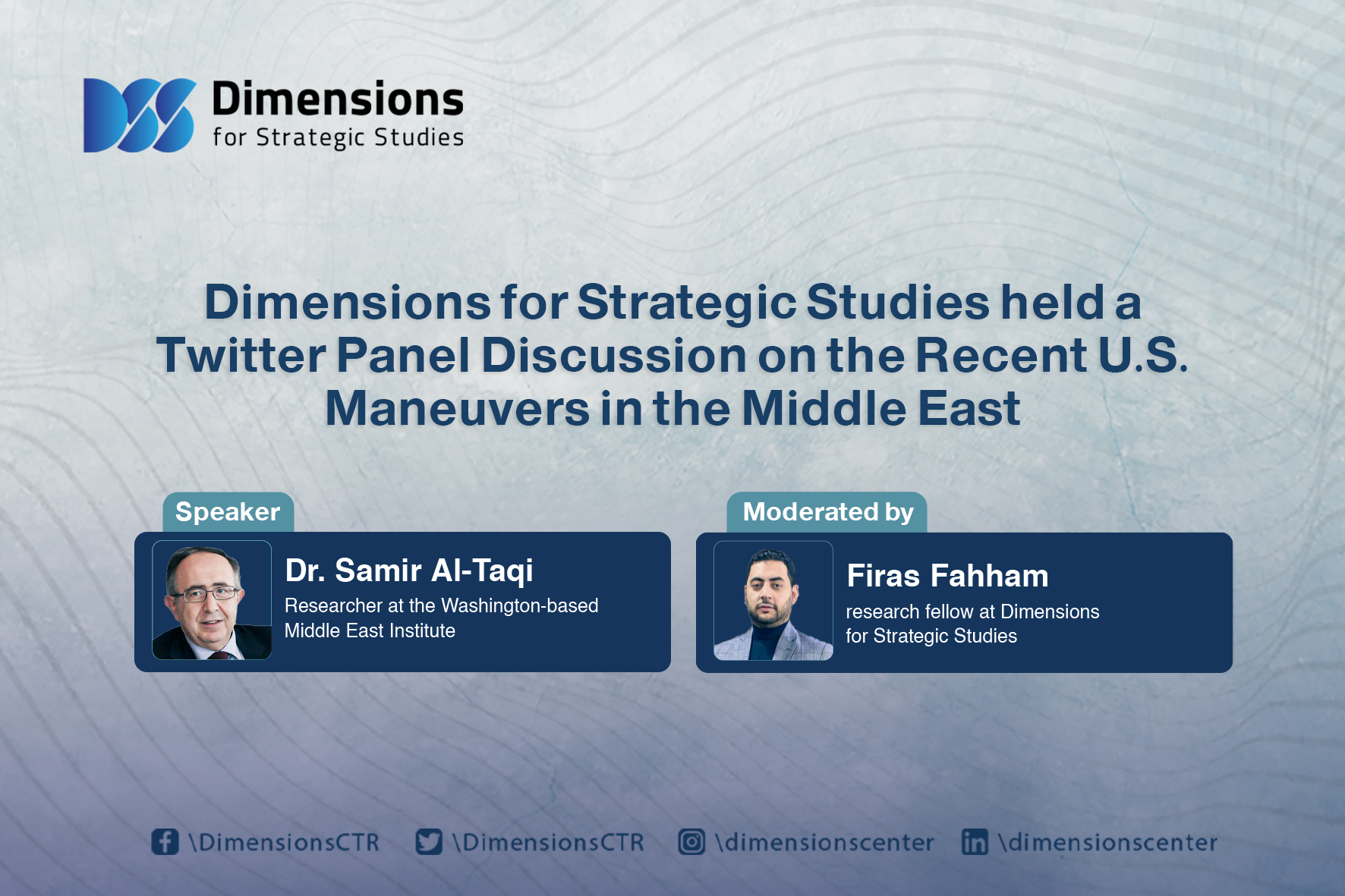
U.S. Mobilization in the Middle East and the Looming Prospect of War with Iran
2023-08-114194 view
Yesterday, Thursday, September 18, 2023, Dimensions for Strategic Studies (DSS) organized a Twitter panel discussion on its Twitter account. The conversation was on the U.S. presence in the Middle East in addition to its potential implications and repercussions for the region.
In the panel, the speaker was Dr. Samir Al-Taqi, a researcher at the Middle East Institute in Washington. Taqi was interviewed by Firas Faham, a researcher at DSS.
In the dialogue session, Dr. Samir Al-Taqi initiated the conversation by addressing the recent military reinforcements that the United States has deployed to the Middle East. He emphasized that these moves come amid growing concerns about a possible direct confrontation with Iran.
Taqi argued that the U.S. has found itself in a strategic quandary in the Middle East, lacking effective tools to wield influence. This has led the U.S. to increase its military presence as a way to recalibrate its regional influence, particularly in the aftermath of Russia's military aggression in Ukraine.
According to Taqi, the U.S. strategy isn't solely focused on the Middle East; it also aims to counterbalance other global powers. He suggested that the American efforts to fortify its position in the Middle East are partly driven by its broader geopolitical objectives, including the need to "tame Russia" in Europe and to contain China's expanding influence. These global considerations have gained urgency as China intensifies its efforts to forge strong relationships with Middle Eastern countries.
Regarding security cooperation in the Middle East, Dr. Al-Taqi highlighted that the United States does not desire to foster an organic security collaboration between China and Middle Eastern countries. This is mainly due to concerns over not being able to access sensitive information through its cooperation with the Gulf Arab states.
In the context of the military developments that Washington recently directed towards the Gulf waters, Al-Taqi noted that the U.S. faces challenges because of its "previous neglect in the Middle East, especially after its diminished role in both the Syrian and Palestinian files." There's also an evident desire by the U.S. to reestablish its maritime influence in the region, particularly concerning energy resources and the use of naval capabilities in trade matters.
Furthermore, Al-Taqi commented on the notion of an American military operation or ground invasion, deeming it an unbelievable illusion. He explained that the U.S. aims to manage regional conflicts by allying with various regional powers. They leverage their strategic military assets like the Air Force and electronic intelligence tools, such as satellites. Additionally, the U.S. employs precision strikes carried out by its drones to achieve specific targeted objectives.
Al-Taqi touched on the subject of Russia's presence in Europe, stating that Russian forces could have potentially reached the borders of Germany if not for the efforts of Western and American powers. He posited that Eastern European countries, particularly Poland, would be unable to stand against the Russian war machine if Ukraine were to be defeated. In this context, he felt that the United States had no choice but to engage in the Eastern European theater. While the U.S. didn't deploy ground troops in Ukraine, it nonetheless managed the conflict through economic, military, and security leverage, aiming to ensure that Russia didn't achieve its military objectives post-Ukraine war.
As for the Iran-U.S. relationship, according to Al-Taqi, it's not inherently antagonistic. He argued that Iran is not an organic enemy to the United States but rather a "rogue" state that stirs up problems and chaos in the region. However, it doesn't impact the core interests of the United States. Al-Taqi also noted that there are negotiations between the United States and Iran, primarily through agreements that allow inspection teams to visit Iran's nuclear facilities, thereby ensuring that Iran does not develop a nuclear bomb.


